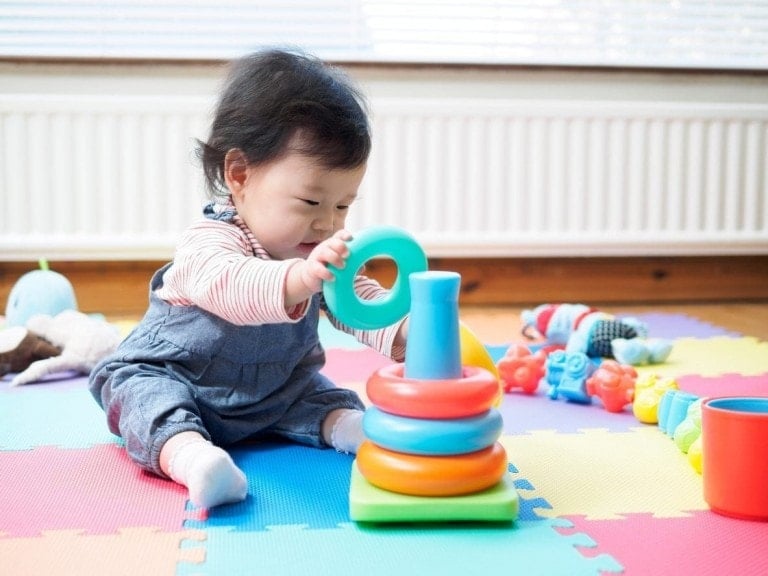No matter how much we think our kids are angels, we’ve all experienced a time or two (or every other day) when our kids have been whole-hearted, undeniable little hellraisers. And what is a mom to do? Well, you could pull out that card. You know, the one that says, “I’m punishing you for something you said or did.” After all, that’s how grounding your child works, right? I will cover everything you wanted to know about grounding, from what it is and how to implement it to whether it’s helpful and appropriate.
What is Grounding, and How Should You Implement It?
Adults use grounding as a disciplinary measure to teach children about the consequences of their words or actions. Grounding is less about punishment and more about teaching lessons and giving your kids a chance to think about their behavior and actions. It is a discipline tactic that involves restricting a child’s access to privileges or removing positive reinforcement, particularly social events, access to peers, or other enjoyable activities, like watching TV, using their tablet or phone, playing video games, missing out on parties, or other peer-based events.1,2
Did they choose not to follow your rules? Or maybe they got into some major trouble at school? Were their attitude and the words they said disrespectful? Regardless of the reason, choosing to use the technique of “grounding” is an alternative to physical punishment (like hitting or smacking). Physical punishments are ineffective and harmful, aiming to highlight bad behavior that we don’t want our kids to repeat or act as a deterrent for these behaviors. So now that we know what grounding is and why you might ground your kids, how should you go about doling out this discipline?2
Making Grounding Effective
Banning your kids from what they consider fun won’t be effective in the long run. So how do you make grounding effective? Follow these three rules for your kids to get the most out of the experience; hopefully, you don’t have to ground them again. At least not for a while.3
1. Set Expectations and Have Conversations
An excellent place to start is by communicating rules about what is and isn’t acceptable behavior. While some kids may be too young to appreciate these rules, older ones should know the difference. It’s important to remember that any punishment or consequence should be developmentally appropriate, which means we would have different expectations of behavior for our toddlers versus our teens. We also need to try and ensure the punishment fits the “crime” for our kids to understand the link between their actions and consequences. So, if they aren’t sharing a video game with a sibling, removing it might be an appropriate consequence instead of saying they can’t go to a friend’s party, which might not make sense to them.2
2. Gauge Their Understanding
Sometimes it can be hard to know whether your child is actively listening to you when you lay out rules and expectations. We all know that glazed-over look they get when the subject becomes something they’re not interested in. Ensure that they understand your conversations and that rules and consequences are laid out. Otherwise, grounding as a consequence for not following the rules will confuse and frustrate them, and they won’t learn any lessons.2
3. Don’t Overdo It
It’s essential to stick to the rules you set. You know how quickly kids catch on to empty threats. But it’s also vital not to overdo the punishment. Over-enforcing or using a too-harsh punishment can lead to negative consequences, like resentment and dishonesty, and unintentionally teach them people-pleasing behavior.2,4
Think of it this way: If every time your kids misbehave, they’re fearful about what will happen next, they might start cutting corners or lying to avoid getting in trouble. But be wary of punishing every little instance because you don’t want to teach them to put everyone else’s happiness, acceptance, and needs above their own.
When is Grounding Your Child Appropriate?
Grounding your child will vary among families. Some parents may use it as a consequence of breaking the rules. Others might use it to remove privileges to redirect their child’s focus onto tasks that need their attention—for example, keeping them home from a friend’s house because they haven’t dedicated enough time to studying.
Grounding can begin when kids are old enough to understand and learn from their mistakes. Parents might think of grounding as physically keeping their kids home, but there are other ways you can apply the concept of grounding if your kids don’t have a robust social schedule. This could mean taking away screen time or other privileges. For this to be effective, hold your ground. If you say they will lose their privileges for a week, but on day two, you cave in, you’re teaching your kids the wrong lesson.
Tips for Effective Grounding
If you’re considering using grounding as a punishment or a teaching tool for your kids, there are a few guidelines to follow to make it effective.2,5
- Gauge your kid’s ability to understand the expectations.
- Communicate and set expectations so there is no surprise when you dole out the punishment.
- Don’t turn grounding into a threat or use it as a scare tactic. The whole point is to illustrate the consequences of inappropriate words, actions, and intent.
- Tailor grounding to your family’s needs. Be consistent and follow through.
Will grounding your child always be the best way to get them to listen? Maybe. But trying it out to highlight the importance of your kid’s actions and words might be the missing piece to help them understand they are responsible for their choices.










